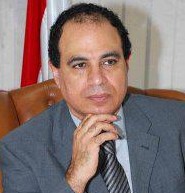Reading some of the shrill comments posted online by World Bank staffers expressing (anonymously) their loathing for Paul Wolfowitz, you can understand why the bank president feels he has been the victim of a “smear campaign. But in taking the role of wounded victim, Wolfowitz seems blind to his own mistakes, which have had ruinous consequences for a great institution. Wolfowitz has failed at the World Bank not because his underlings were out to get him (though many probably were), but because he treated the organization itself as an enemy. He saw its professional staff as an impediment to achieving his goals, rather than a potential ally. Instead of heeding advice to work with the prickly international staff and win them over, he installed a palace guard of Americans who, like him, exuded the cocky “we know best confidence of the Bush administration. This disdain for career staff officers – whether at the Pentagon, the Central Intelligence Agency, the Justice Department or an international agency such as the World Bank – is a defining characteristic of the Bush administration and a big reason for its undoing. Administration officials are arrogant – no other way to put it. They ignore the advice of the professionals whom they regard as obstacles to their agenda of transformation. In their impetuous self-confidence, they become wreckers. This hubris recurs again and again. We saw it in Defense Secretary Donald Rumsfeld’s high-handed management style; in Vice President Dick Cheney’s continuous pressure on CIA analysts to bolster the administration’s message on Iraq; in CIA Director Porter Goss’ purge of agency officers suspected of disloyalty; in Attorney General Alberto Gonzales’ treatment of career attorneys at Justice. Wolfowitz was in some ways the most admirable of the lot. He is an intellectual – an idealist who understood everything, except his own limitations. A visionary rather than a manager, he surrounded himself at the Pentagon with people who were personally loyal but had limited expertise in the Middle East. Worse, he and his coterie of top aides rejected the counsel of the people who actually did know something – the uniformed military and intelligence officers who were deeply skeptical in the run-up to the Iraq war. When Wolfowitz decamped to the World Bank in 2005, he brought two abiding characteristics of the neoconservatives – a passion for transformation, and a disdain for lesser beings wedded to the status quo. In his first weeks, he tried to temper that arrogance. He told colleagues that he wanted to be a consensus builder, and he seemed to be listening when senior colleagues urged him to work with the professional staff and gain their confidence. “Reach out to us, one top official remembers telling Wolfowitz in those first weeks. “Your success will be our success. But within a few months, the institution had become the enemy. To push his agenda on a World Bank staff notorious for its own intellectual arrogance, Wolfowitz brought in two veterans of the Bush White House, Robin Cleveland and Kevin Kellems. Like their boss, they were talented people – but lacking in the management skills that can foster change in a hidebound institution. Soon the Bank’s vice presidents were grumbling that Cleveland had bypassed them in making decisions about policies on Chad, Iraq and other subjects. Top bank officials began resigning in frustration. One senior official remembers telling Wolfowitz in mid-2006, when there was still time to fix things: “Make the investment in trusting your vice presidents and directors and you will be repaid, a thousand times over. This man recalls that Wolfowitz “did what he always does – he took notes. But he didn’t change his aloof style. Wolfowitz’s enemies were gathering, brandishing their internal memos about how Wolfowitz had approved a special pay package for his girlfriend, Shaha Ali Riza, as part of an agreement for her to leave the Bank during his tenure as president. This wasn’t the scandal critics have claimed. Wolfowitz initially sought to stay out of negotiations about Riza’s future. But unfortunately, he didn’t follow his own instincts and, in the process, gave his enemies just enough rope to hang him. The lesson of Wolfowitz’s failure is that you can’t change things unless you truly understand them. That was true in Iraq, and it was true at the World Bank. As smart as he was, Wolfowitz seemed not to understand that the Bank was a proud, multinational institution – almost its own country – with its own rules and culture. With the best of intentions, he made a mess. Now it’s time for someone else to repair the damage.
Syndicated columnistDavid Ignatiusis published regularly by THE DAILY STAR.

